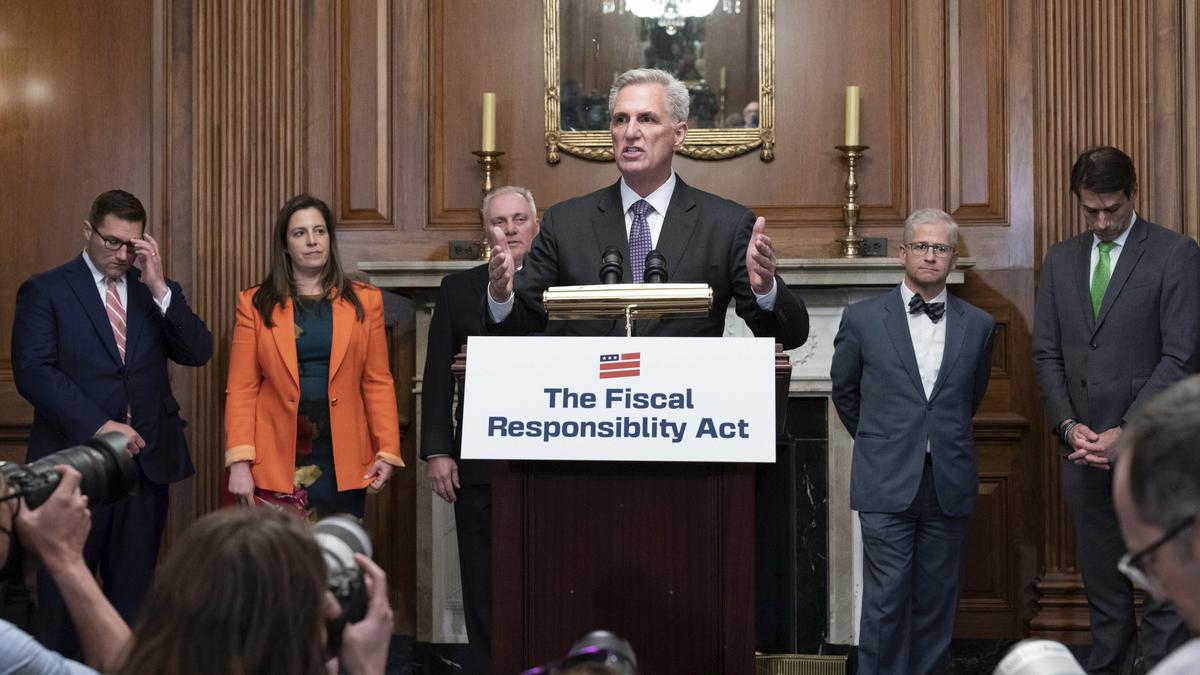
House OKs debt ceiling bill to avoid default, sends Biden-McCarthy deal to Senate
The Hindu
Veering away from a default crisis, the House approved a debt ceiling and budget cuts package on late May 31, as President Joe Biden and Speaker Kevin McCarthy assembled a bipartisan coalition of centrist Democrats and Republicans against fierce conservative blowback and progressive dissent.
Veering away from a default crisis, the House approved a debt ceiling and budget cuts package on late May 31, as President Joe Biden and Speaker Kevin McCarthy assembled a bipartisan coalition of centrist Democrats and Republicans against fierce conservative blowback and progressive dissent.
The hard-fought deal pleased few, but lawmakers assessed it was better than the alternative— a devastating economic upheaval if Congress failed to act. Tensions ran high throughout the day as hard-right Republicans refused the deal, while Democrats said “extremist” GOP views were risking a debt default as soon as next week.
With an overwhelming House vote, 314-117, the bill now heads to the Senate with passage expected by week's end.
Mr. McCarthy insisted his party was working to “give America hope” as he launched into a late evening speech extolling the bill's budget cuts, which he said were needed to curb Washington's “runaway spending.”
Amid deep discontent from Republicans who said the spending restrictions did not go far enough, Mr. McCarthy said it is only a “first step."
The package makes some inroads in curbing the nation’s debt as Republicans demanded, without rolling back Trump-era tax breaks as Mr. Biden wanted. To pass it, Mr. Biden and Mr. McCarthy counted on support from the political center, a rarity in divided Washington.
In a statement released after the vote, Mr. Biden said: “I have been clear that the only path forward is a bipartisan compromise that can earn the support of both parties. This agreement meets that test.”













